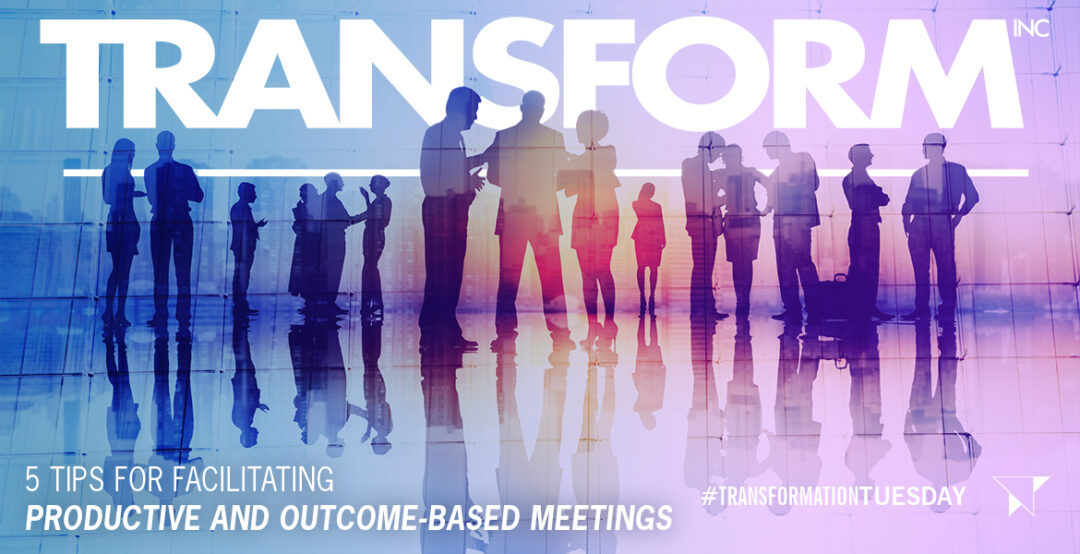A recent study revealed that employees spend an average of 31 hours per month in meetings, and 50% of that time is considered wasted.* Everyone wants meetings to be more productive and efficient, yet it takes real skills to masterfully facilitate a meeting. Below are a few of the tips we’ve taught over the years.
1. Have a meeting agenda that is focused on the desired outcomes from the meeting, not just discussion points. Keep focused on the outcomes you want and lead wandering, rabbit-hole discussions back on point.
2. Send out material ahead of time. Reading during a meeting is a waste of everyone’s time. Expect people to show up informed and prepared to comment on the materials sent.
3. Let the attendees know what you want from them. What input do you want on what topics? Are there decisions you want this group to make or do you just want input? If attendees are contributing to the agenda, make sure they identify what outcome they want/need from the discussion.
4. On the agenda, put in the time that each item will be discussed. When time is up for the discussion, say to the group, “Time is up. What is the next step for this item?” If a decision was needed and it could not be made, identify what the next step will be to get a decision by when. Sometimes an item needs further investigation. Assign a smaller team to do some work between meetings and report back to the group at the next meeting.
5. Always end a meeting by reviewing the commitments made by team members during the meeting and the decisions made by the group. Agree on how the decisions will be communicated, by whom, when, and what the content of the communication will be.
6. BONUS Tip – Always document your meetings, especially the commitments made by team members and the decisions made by the team. At the start of the next meeting, review the commitments that were made at the last meeting and get an update on the status of those commitments.
Knowing how to move a meeting along, balancing the need to get things done with ensuring information and team member input informs good decision-making, observing team member interactions (verbal and non-verbal), and managing the group dynamics are the necessary skills for effective meeting facilitation.
An annual best practice that we like to encourage is to review all the meetings held in your organization and assess their effectiveness and efficiency. The above six tips can be the criteria you use to assess your meetings.
A well-run meeting is an art and a skill. Everyone can learn the skills to run an effective meeting but only a handful master the art of meeting facilitation.
Let us know after you do your assessment if we can help you and your team master the art and skill of meeting facilitation.
Theresa Gale
Principal, Transform, Inc.
* https://www.ambitionsaba.com/resources/time-wasted-in-meetings




